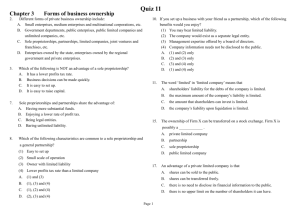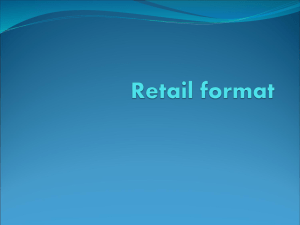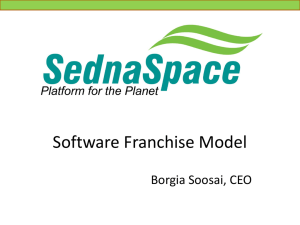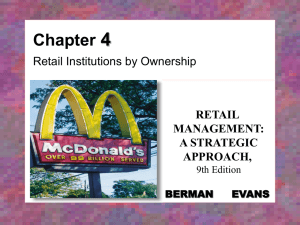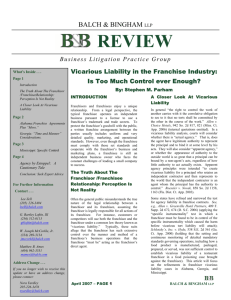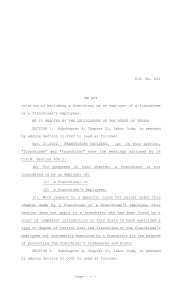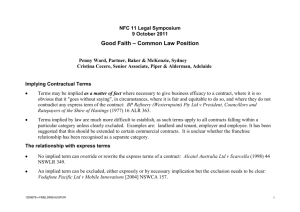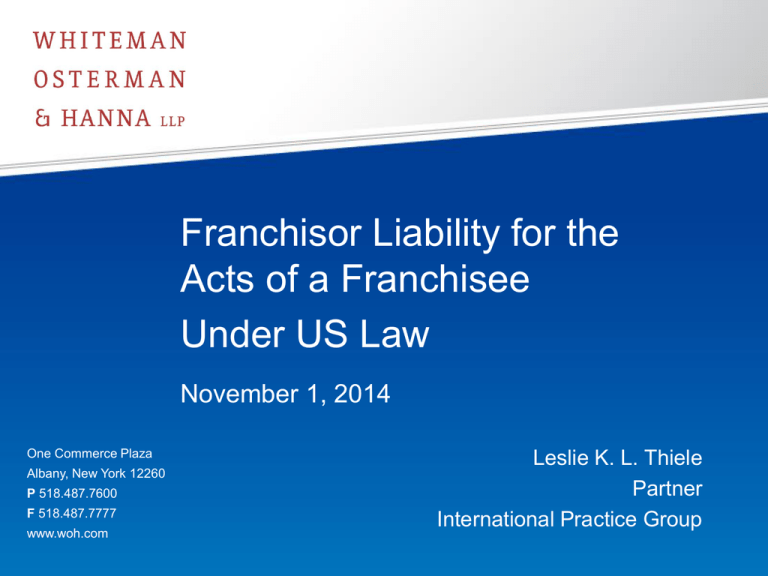
Franchisor Liability for the
Acts of a Franchisee
Under US Law
November 1, 2014
One Commerce Plaza
Albany, New York 12260
P 518.487.7600
F 518.487.7777
www.woh.com
Leslie K. L. Thiele
Partner
International Practice Group
The Issues
If a franchisee – intentionally or unintentionally – injures another party by
its actions or its negligence, is the franchisor responsible?
Example: the McDonald’s “hot coffee” case:
Is McDonald’s HQ responsible for the patron’s severe injuries?
An injured plaintiff looking for “deep pockets” will sue anyone in the
corporate chain of command (and some not!).
- The impact (until 2014) of the lack of health insurance
- Products: the plaintiff can sue anyone in the chain of sale
Why – and how - is an “innocent” franchisor on the hook?
1
Standards for Liability
A tort claim requires
a.
Duty: the party causing the injury owes a duty to the person
injured (often; a duty of care)
b.
Breach; The party causing the injury breached that duty.
c.
Causation: the breach is the actual and proximate cause of the
injury
d.
Damages: the plaintiff must prove the extent of its damages
No duty, no recovery
2
Direct Liability of the Franchisor
A franchise involves a certain level of control over the operations of the
franchisee
A common business purpose / Prescribed operating model
Franchisor’s control over a franchisee could lead to DIRECT liability
a.
Duty: Franchisor’s control over franchisee’s day-to-day operation
inference of a “duty” to a plaintiff (cleaning, maintenance, etc.).
b. Breach: Franchisor did not notice franchisee’s failure to clean
c. Causation: Patron slid on slippery floor
d. Damages: Broken leg hospital bills, etc.
Franchisor can be sued directly by the injured party because its control
created a DUTY to the injured party
Many states: no duty absent proof of control
3
Vicarious Liability of a Franchisor
A person is held strictly liable (liable without fault) for tortious conduct of
another.
a. Imposed though person did not commit any tortious act.
b. Responsible because of the close relationship between that person
and the person committing the tortious act.
c. Common law concept
Agency relationships:
a. Actual Agency: Franchisee is acting under direction of the
franchisor ; franchisor controls the actions of the franchisee
A principal is vicariously liable for the actions of its agent.
b. Apparent Agency: franchisor leads/allows third party to reasonably
believe that the franchisee is the franchisor’s agent or that the third
party is dealing with the franchisor…and the third party relies on
this misrepresentation or belief to its detriment.”
4
More Roads to Vicarious Liability
Agency law doesn’t fit franchise relationship well: control essential.
“Control test”: Did franchisor exercise sufficient general control over
franchisee to be considered a “principal” and responsible?
a.
Sufficient control franchisor responsible regardless of actual
involvement or ability to prevent disaster
b.
Leading test until the last 10 years
“Instrumentalities test”: Did franchisor exercise control over the
instrumentality which caused the harm?
a.
No control over the instrumentality = no liability
b.
Current trend in vicarious liability analysis: recognizes that strict
agency analysis does not fit well
5
Avoiding Vicarious Liability
Avoid franchisees in states which have not yet clearly adopted the
“instrumentalities” test
Carefully analyze the level of control exercised by the franchisor
over day-to-day operations to avoid “actual” agency
- Case law: how much control is “too much”
- Periodic inspections rather than daily control
- McDonald’s: Extreme high coffee temperature REQUIRED by
HQ with knowledge that it would scald
Avoid “apparent agency” through publicity of independent
ownership & operating relationship, signage of ownership
Indemnification and/or contribution clauses in a franchise
agreement in case of third-party suit
6
Contact Information
Whiteman Osterman & Hanna LLP
One Commerce Plaza
Albany, New York 12260
USA
Tel: (518) 487-7600
Fax: (518) 487-7777
www.woh.com
Leslie K. L. Thiele
Direct: (518) 487-7636
lthiele@woh.com
The information in this presentation is intended as general background information on certain
franchise issues. It is not to be considered as legal advice with regard to any particular case or
situation.. Please consult your legal and tax advisors before taking action.
© 2014 Whiteman Osterman & Hanna LLP All rights reserved.



